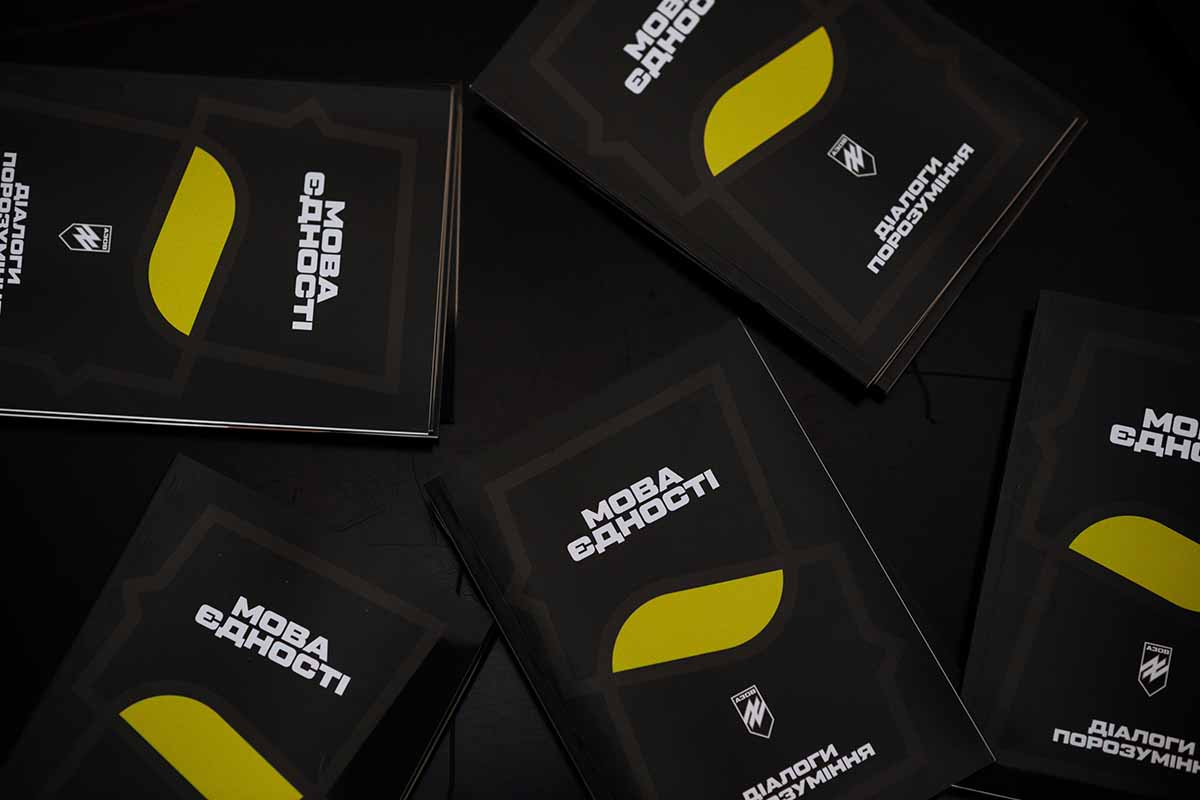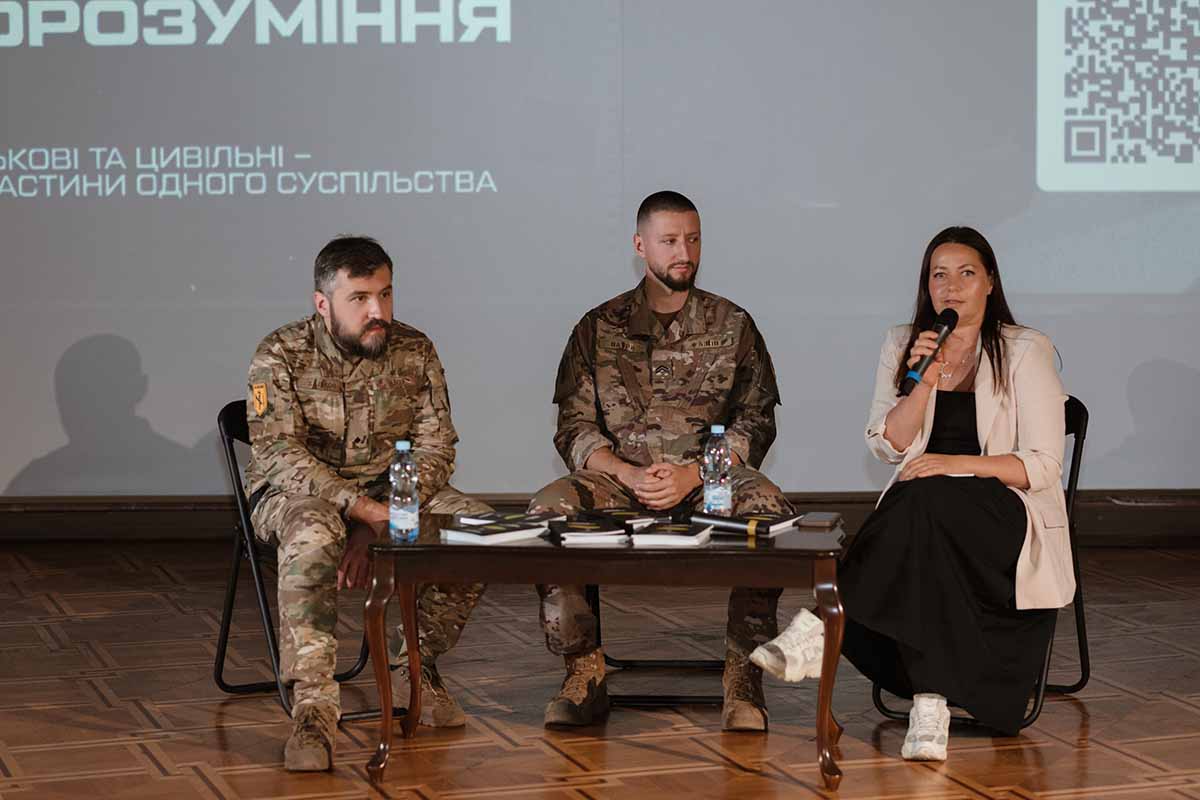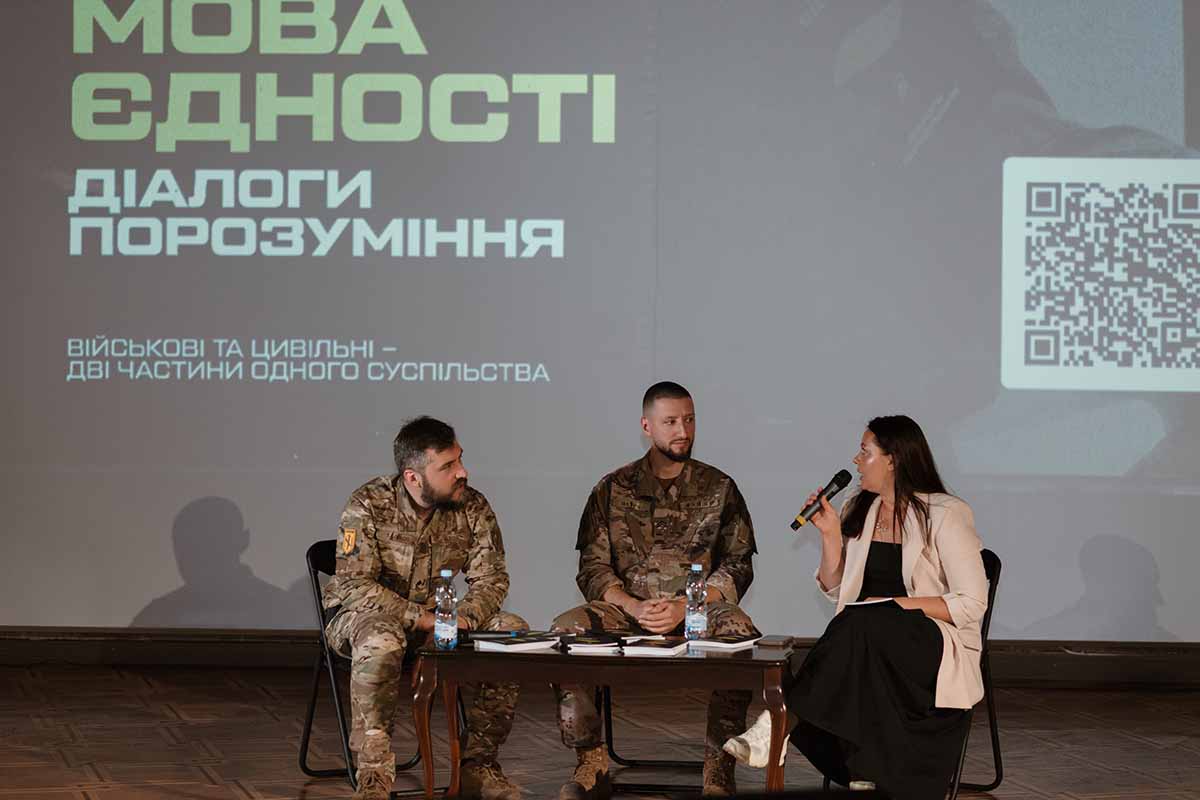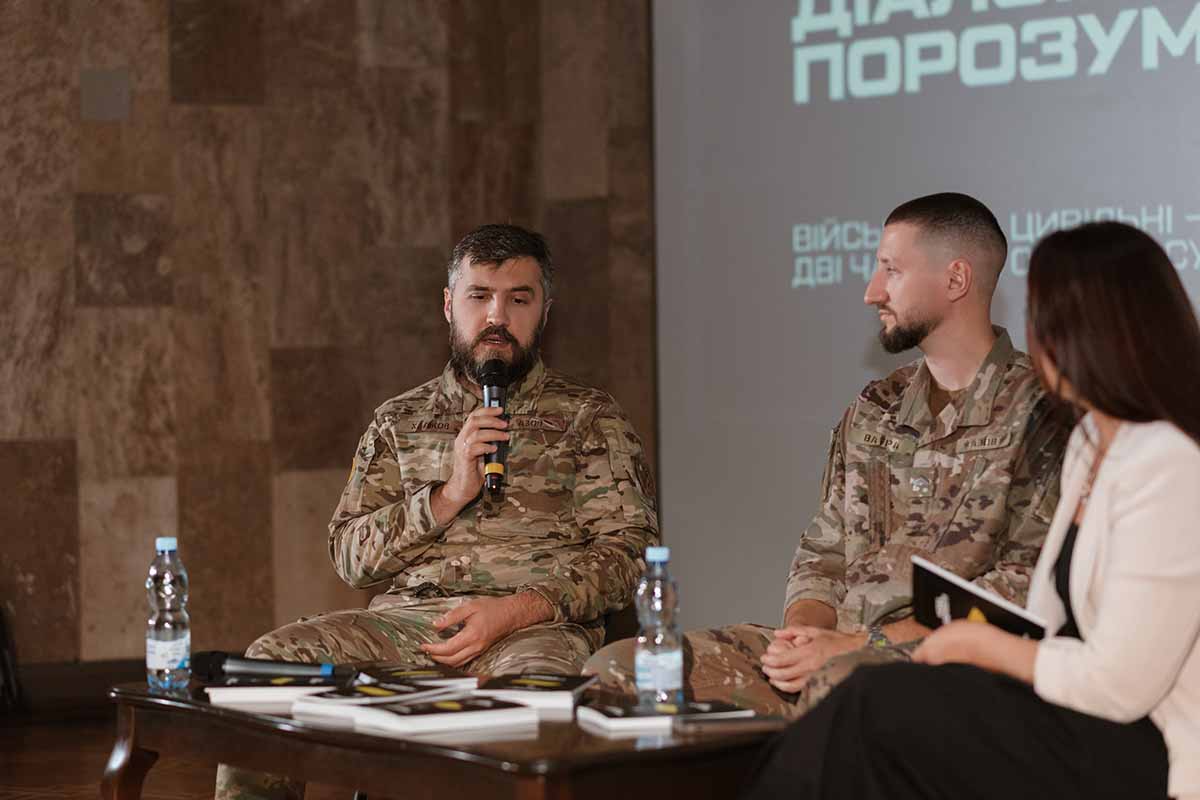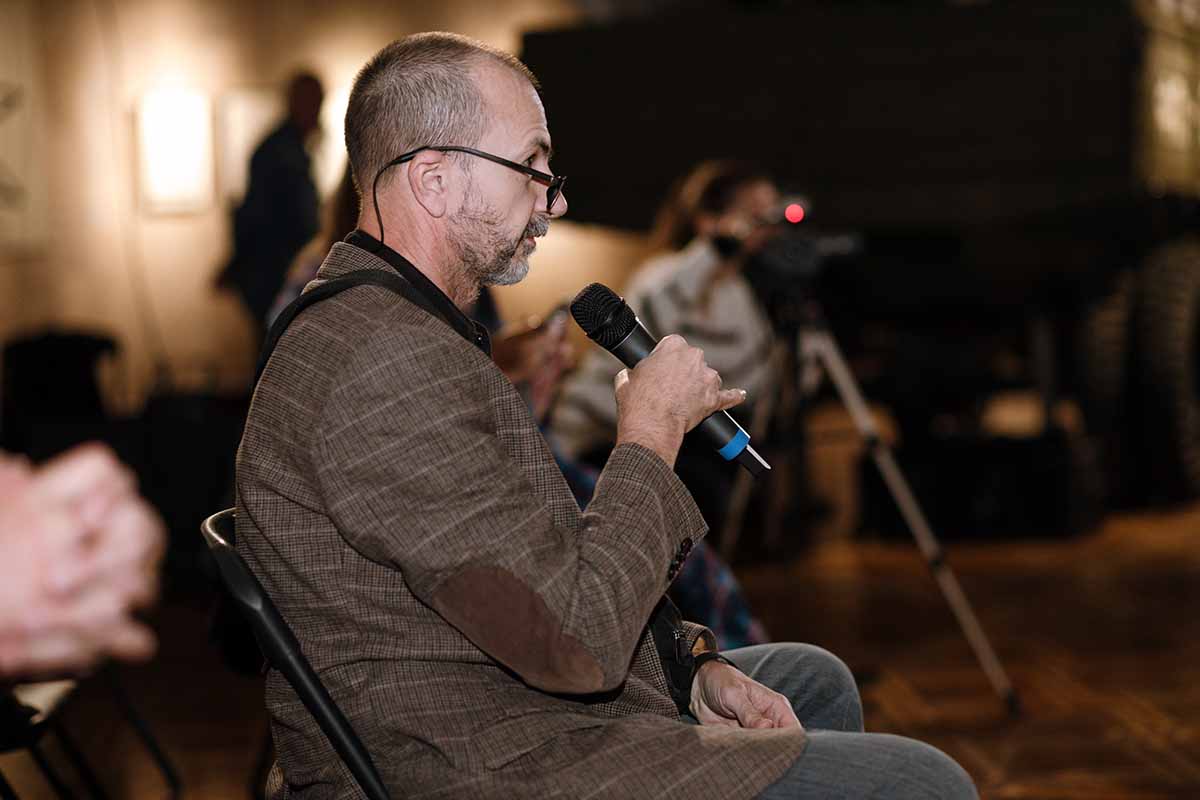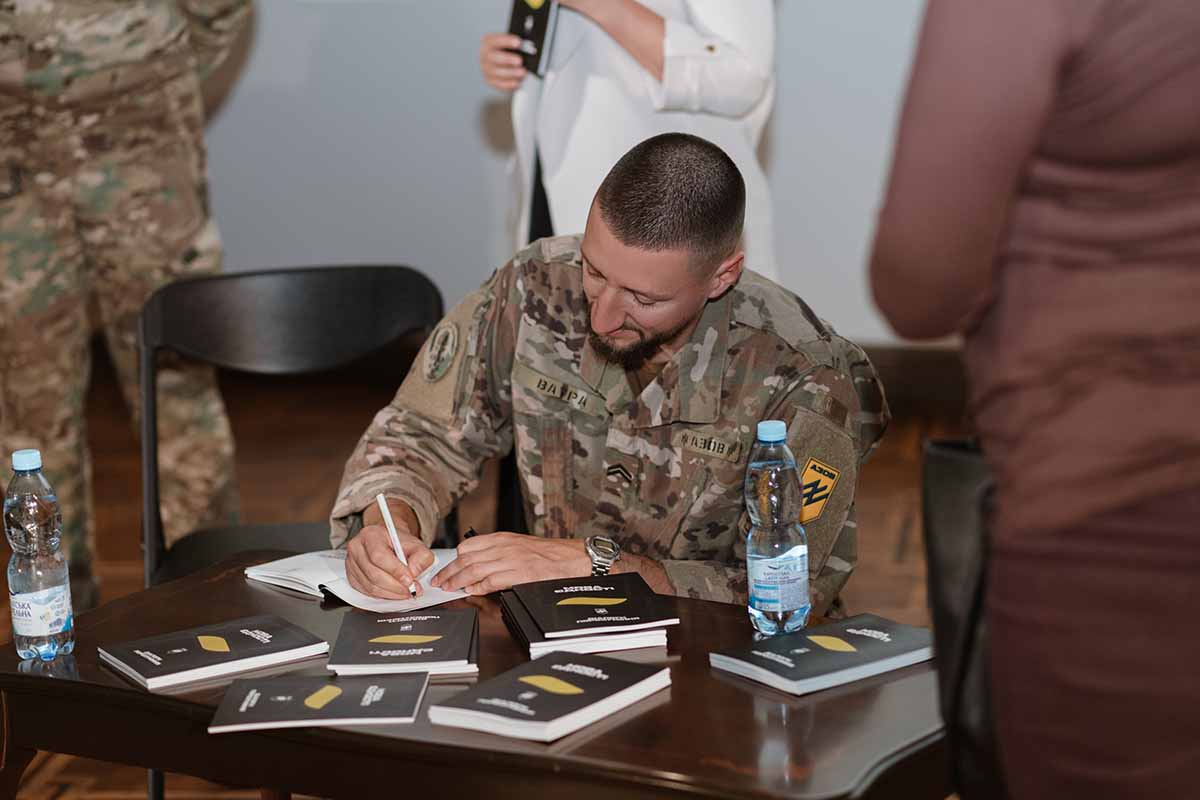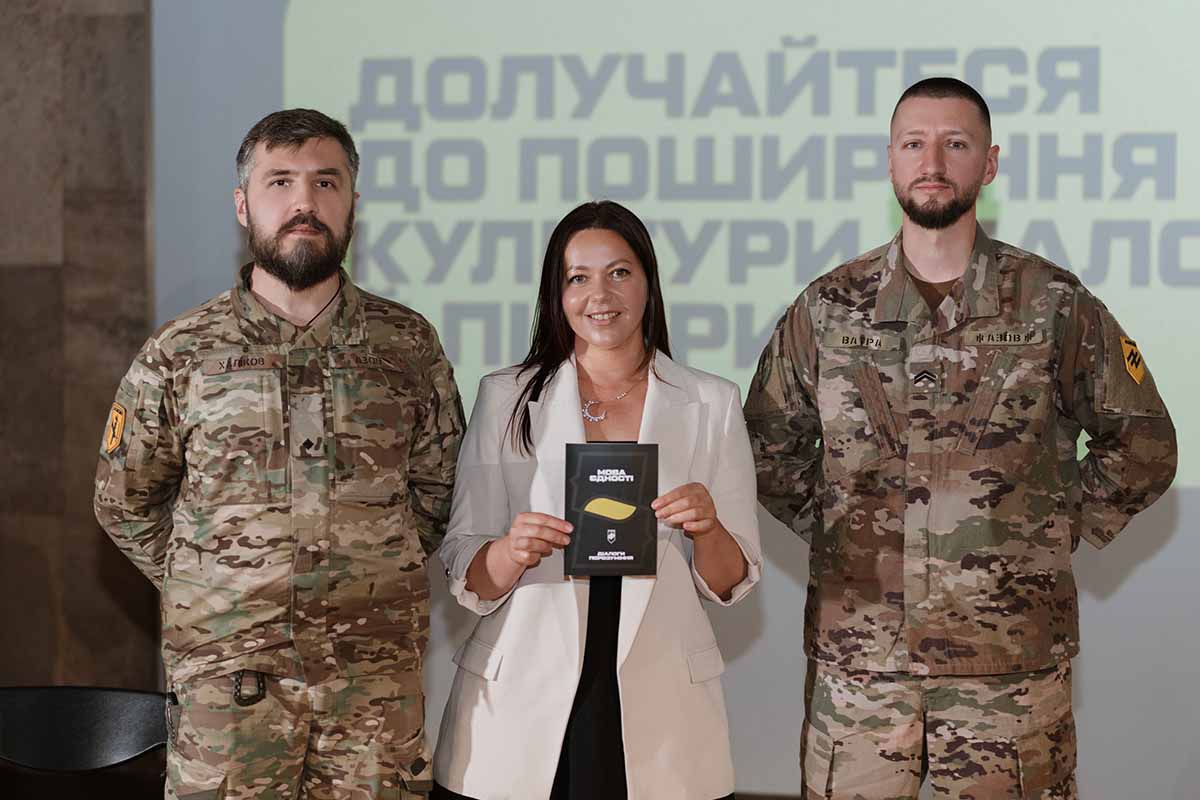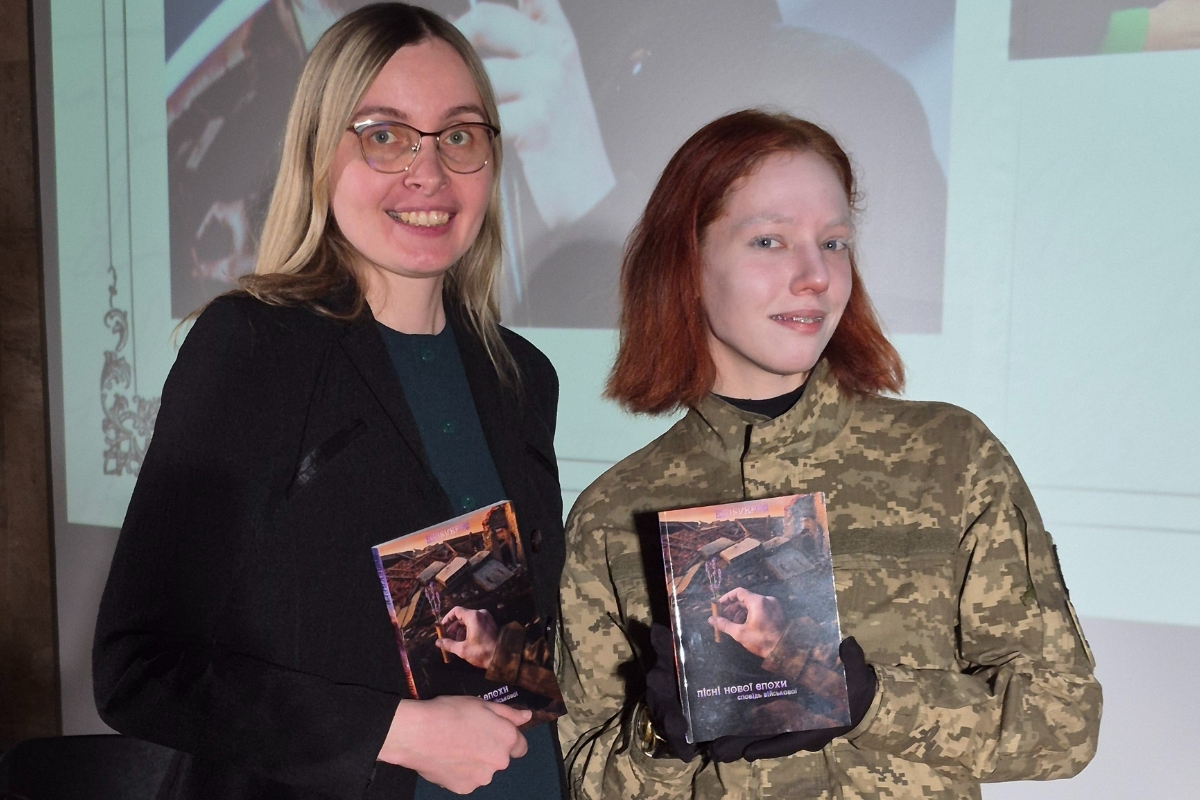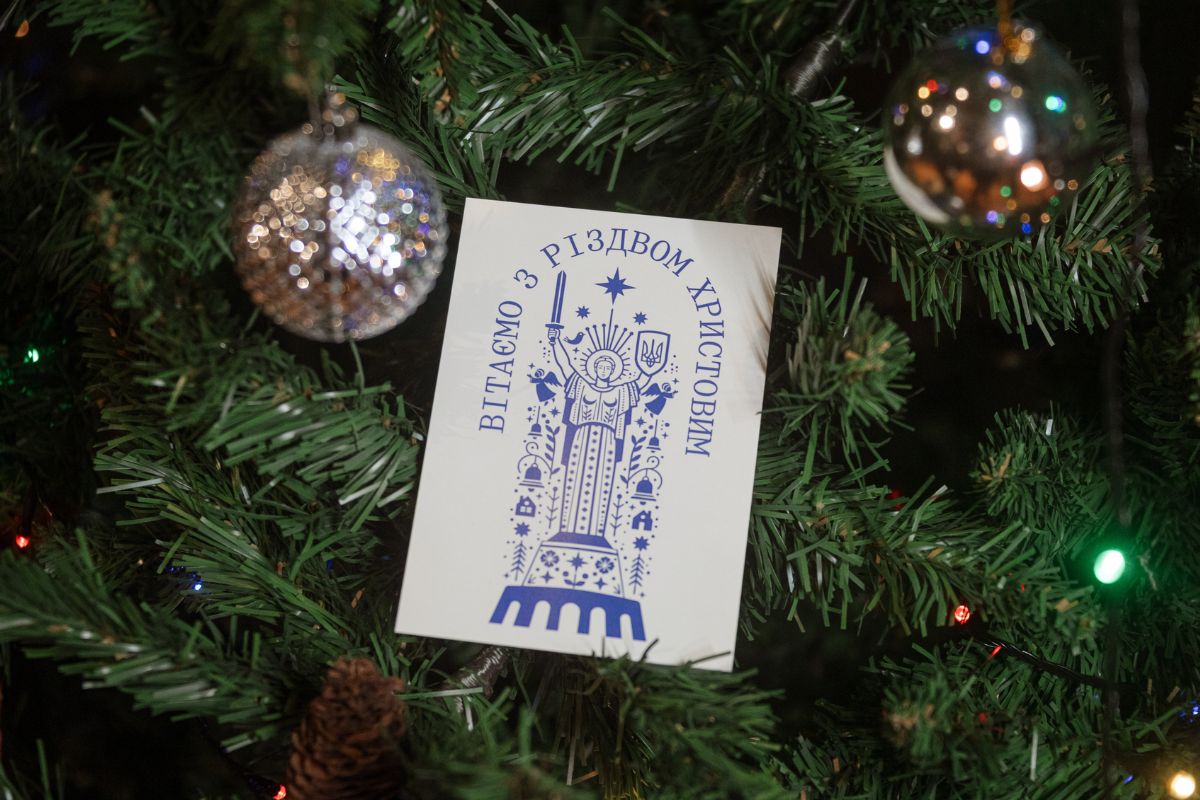“Language of Unity”: War Museum Discusses Trust between Military and Civilians
On September 27, a war yet profound conversation took place at the War Museum about the vital importance of learning to listen to one another. The event centered on the presentation of “Language of Unity”, a methodological guide to ethical communication created by military psychologist of the 12th Special Forces Brigade “Azov” in cooperation with veterans and civilian specialists. The event was moderated by Iryna Uzhakova, Head of Barrier-Free Programs at the Museum.
The co-authors and publishers of the handbook – Azov psychological support officer Yevhen Shyshatskyi (“Vatra”) and standard-bearer Ruslan Khalikov (“Vydavets”) – shared when and how the need to create the book arose. Service members return to civilian life not only with combat experience but also with an invisible burden. Therefore, it is important that society greets them with words of support, rather than random phrases that can cause trauma. The publication is the result of many years of accumulated experience from both military psychologists and civilian specialists who work with the topics of trauma, reintegration, and veteran support. The authors have collected the most common mistakes in communication, as well as effective practices that help build a language of trust. That is why the book contains not only theoretical recommendations but also real-life examples, dialogues, situational case studies, and infographics that transform complex psychological knowledge into simple and accessible tools for daily interactions.
After the presentation, a lively discussion took place. Guests asked questions related to their own lives: how to help those who returned from captivity; how to speak properly with service members about civilian experiences; and how to overcome social divisions and break down barriers. They also discussed why seeking psychological help should become an integral part of our daily lives, and what role educational initiatives, chaplains, and veteran mentors can play in raising the younger generation.
Separately, “Vatra” and “Vydavets” emphasized the phenomenon of post-traumatic growth. Despite the pain and loss, for many, the war becoming a turning point for re-evaluating life, a push toward new beginnings, and a desire to help others. It is very important that society supports those who have returned and does not prevent them from changing their profession or path if their new life requires it.
It is worth starting simply: support your acquaintances in the military, write a few warm words, and be ready to listen even when the conversation sounds sharp or painful. This may seem like a trifle, but genuine steps like these form unity – a societal unity where military and civilian speak the same language of mutual respect.
For the War Museum, this event became another step in the mission to be not only a space of memory but also a hub for cultural rehabilitation and dialogue. It is here that communication is fostered, a communication where there is always room for respect, support, and humanity. Only in this way can we build a society of trust where military and civilians feel side-by-side, and not on opposite sides of the war experience.
